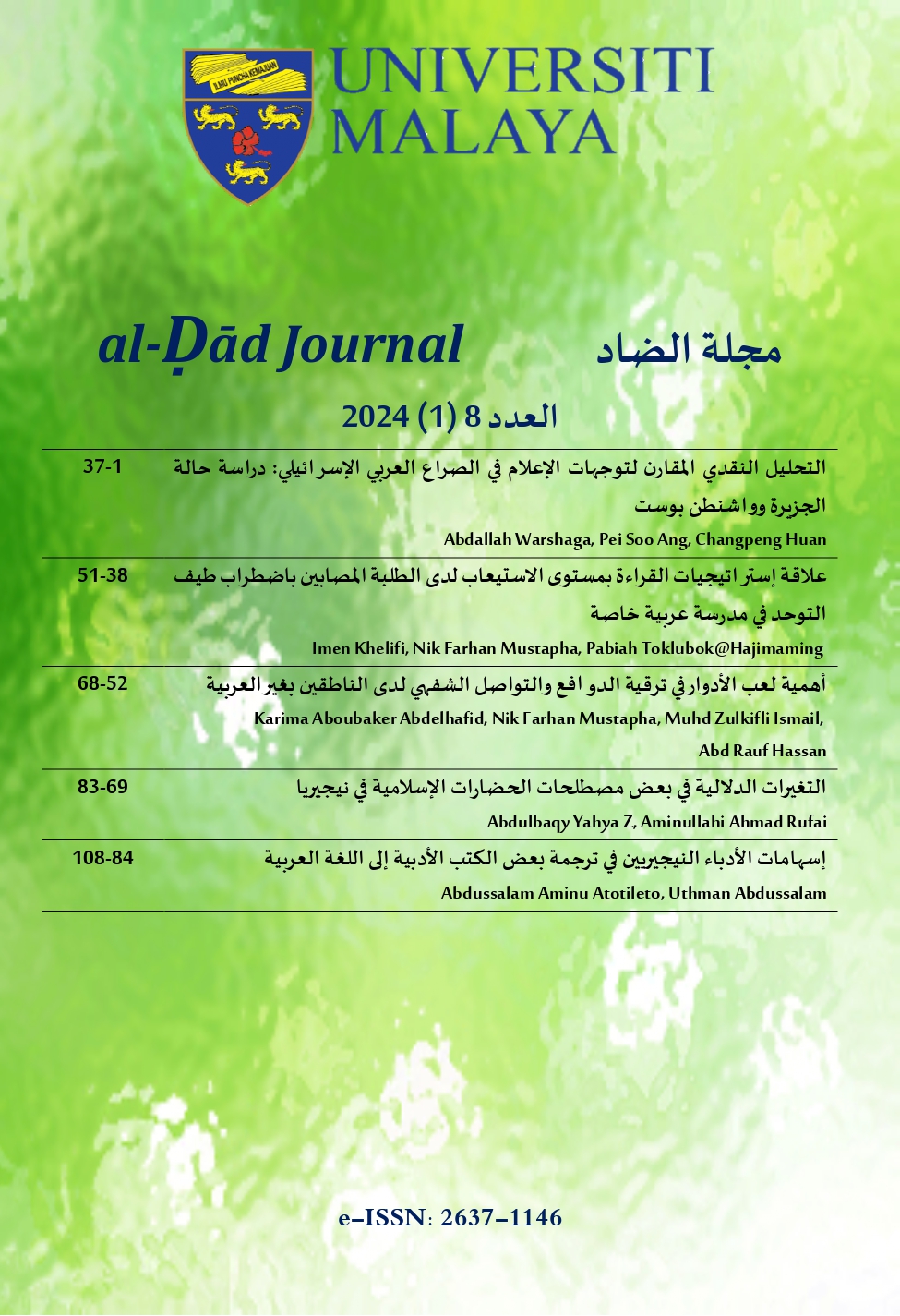A Critical Comparative Analysis of Media Trends in the Arab-Israeli Conflict: A Case Study of Al Jazeera and The Washington Post Critical Discourse Analysis
Main Article Content
Abstract
Abstract
In an era where media warfare parallels armed conflict, this research scrutinizes journalistic strategies in the Washington Post and Al Jazeera English's coverage of the Arab-Israeli conflict. Utilizing Fairclough's critical discourse analysis (2003a) and Martin and White's attitudinal framework (2005), the study unveils the covert mechanisms governing evaluative language to project particular emotional and moral perspectives. Analyzing 35 news texts from each outlet, it elucidates the interplay between power dynamics, emotions, and ingrained biases. The findings indicate that media entities like Al Jazeera and The Washington Post compromise integrity for emotional engagement and sensationalism, steering public sentiment towards intolerance. Al Jazeera emerges as a stern critic of American double standards, emphasizing narratives that bolster Arab and Muslim viewpoints while condemning Israeli occupation and U.S. policies. Conversely, The Washington Post offers vibrant portrayals of American geopolitical interests, downplaying Arab and Palestinian grievances. The study underscores the critical need for journalistic integrity, advocating for a shift in conflict reporting to acknowledge the detrimental impact of emotional narratives that not only taint public discourse but also hinder peaceful resolutions. This research serves as a cautionary tale, highlighting the peril of newsrooms morphing into ideological battlegrounds, thus risking their role as promoters of truth.
Keywords: Appraisal in News Discourse, Critical Discourse Analysis, Ideologies in Al Jazeera and Washington Post, Attitude in Palestinian-Israeli Conflict, the Deal of the Century
